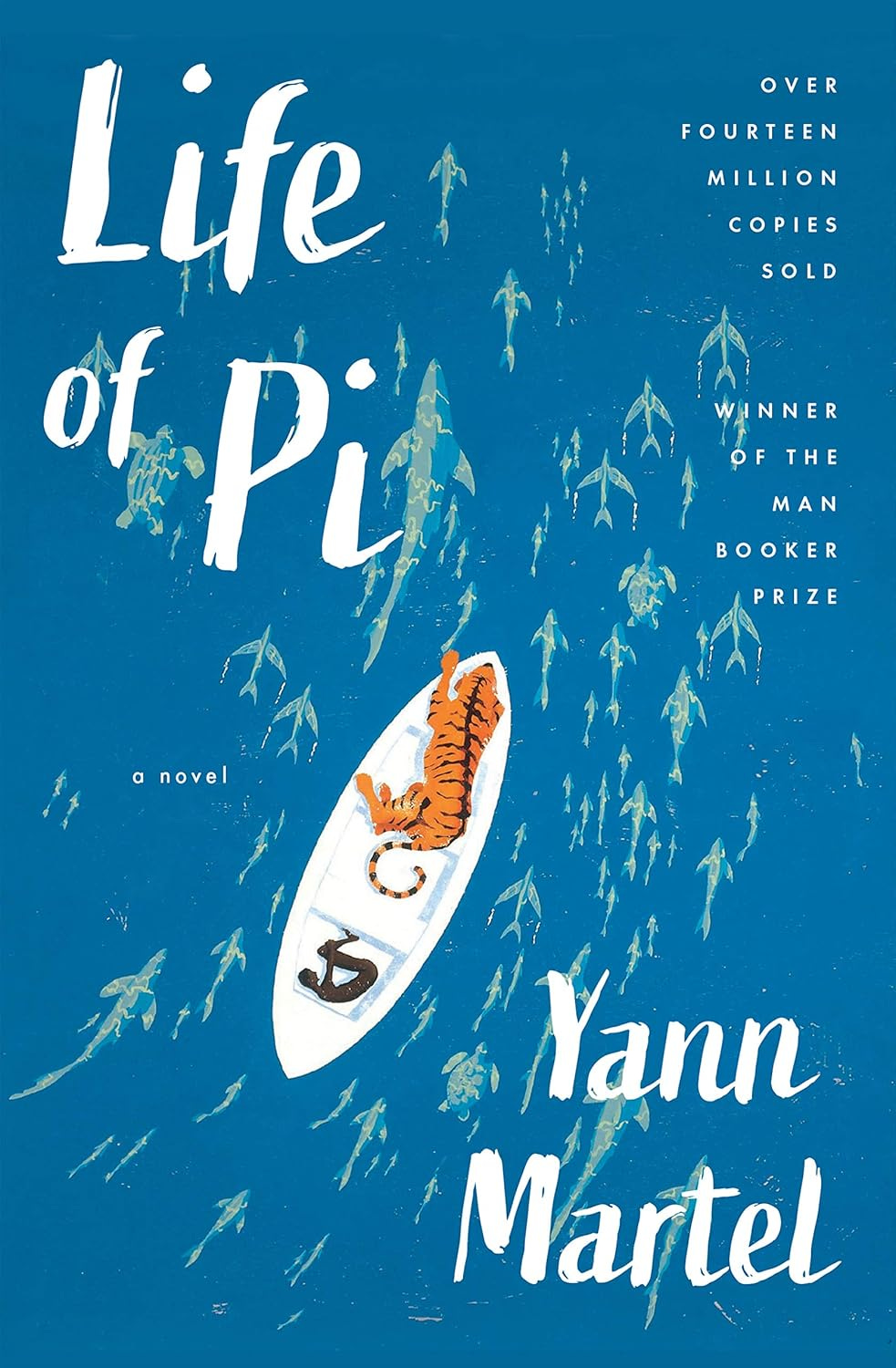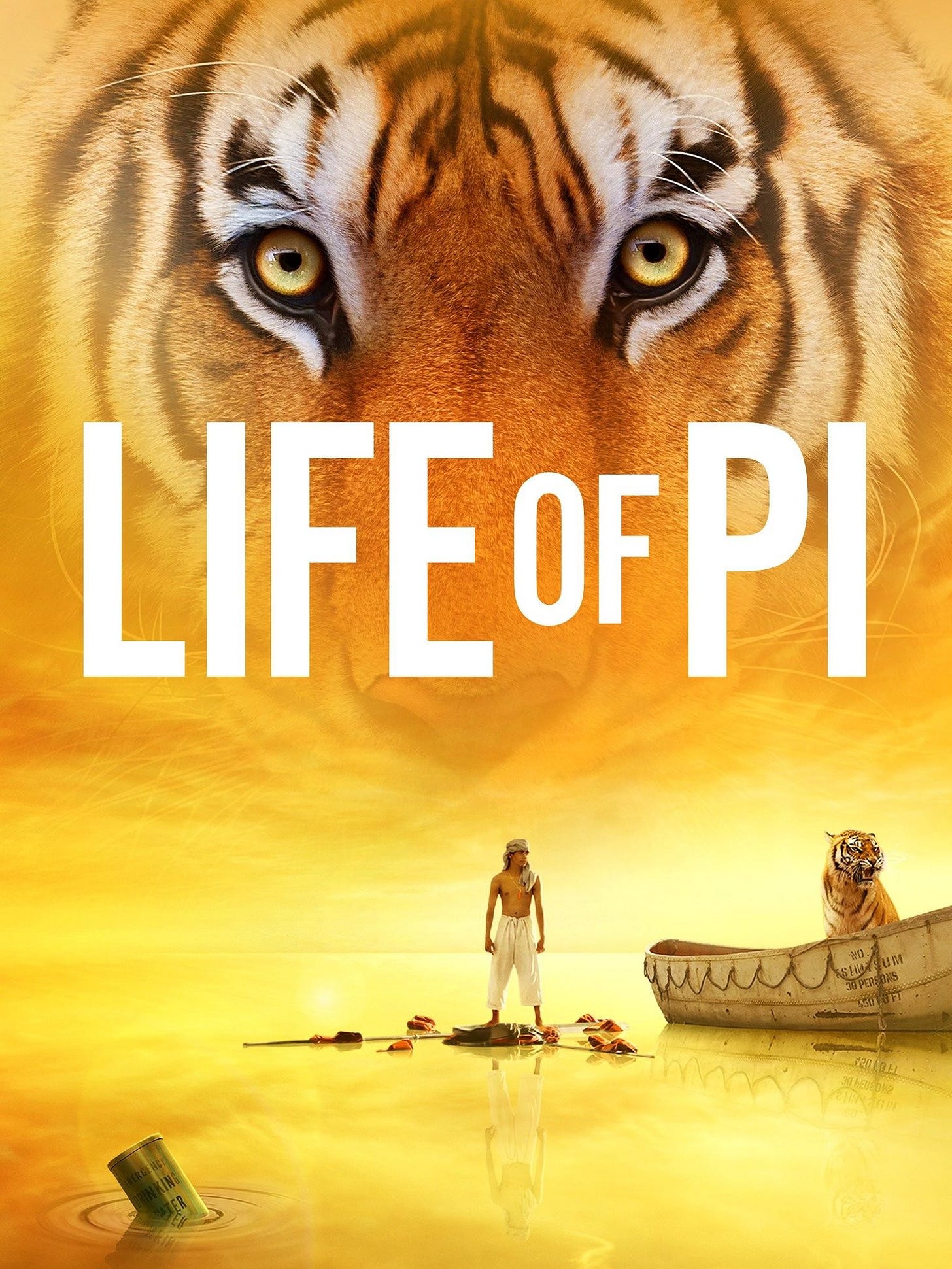Life of Pi is a book I've been seeing at airports marked for the "Best Seller" lists for the last few years. Somehow I thought it was a favourite for travellers all around the world, since the scene was the same in several airport bookstores.
The 3D version of the movie made out of the book hit the cinemas all over the world a couple of years ago, but I did not go and see the movie, using my criterion that I should read the book before seeing the movie. I finally had a chance to read the book.
What a disappointment! I can understand why it is popular with travellers. A shipwreck is always an exciting venue for books (remember Robinson Crusoe?). Lie of Pi tells the story of Pi Patel, an Indian boy of 16 who is managing a zoo in South India along with his father.
The first few chapters describe how they manage the zoo and the interesting animals there, also talking about the region of India (Tamil-Nadu) they are from and the area which is French-speaking (okay, interesting fact I did not know about), some interesting facts about zoo animals (such as the misperception in people that zoo animals are captives and they are not happy outside their natural surroundings, a controversial idea which would draw the ire of Animal Rights activists, I guess).
This part of the book also describes how Pi gets attached to the different religions practiced in India and tries to be affiliated to Hinduism, Christianity and Islam, with some funny side-effects. As expected people do not like this idea and he has some difficulty to appease the members of the three religions he tries to reconcile. I thought this would be the main theme in the book and possibly a good message to convey (all religions are the same in essence and if you take the good parts in them and apply to your life, it really does not matter which religion you adopt etc.) However this was not pursued at all.
Then the zoo fails and Pi and his family board a ship to emigrate to Canada as a way out of their economical despair. As you might have guessed by now, the ship sinks and Pi finds himself on a lifeboat with an orang-utan and a very dangerous Tiger which he names Richard Parker.
The rest of the book tells the story of how Pi survives for almost a year in the lifeboat, his attempts to exert control over the tiger and - in excruciating detail - how he leaves humanity behind in the struggle to stay alive. Some details of his actions are gruesome, but in the end you end up with a feeling of "so what!". Of course in the end there is some hope when the authorities doubt his story when he is finally rescued and ask him to tell them what really happened to the ship. He then constructs a much simpler story that is more believable and they easily relate to the story. This construct raises some philosophical questions such as "can truth be stranger than fiction? When is fiction really fiction? When we tell the story of real events, does it become fiction with the sheer fact that we are telling a story?" and so on. However, this theme, which is very strong in some of Borges' post-modern stories, has not been pursued well either.
My only hope was that I had somehow missed a secret but much holier theme that might exist in the book, but at first reading I had the impression that this was a well-intentioned first draft that did not meet its goal. Of course we should not forget that the book won the 2002 Man Booker Prize (later renamed to Booker Prize, I can list some famous authors winning for other years, such as Salman Rushdie, William Golding, Kingsley Amis, Kazuo Ishiguro, Arundhati Roy etc.) When you look at reader comments, you find out that some readers thought this book helped them find God again (how?), some did not like it at all (my first reaction), some claim that each reader will get something different from the book (a simplistic claim?). I was hoping to watch the film as well, since I read somewhere that the film covered the content very differently, and this could somehow help me understand what the author was trying to do (But if I watched the film carefully and understood it totally, would this help me understand the book?).
Finally (though a few years later) I watched the film directed by Ang Lee. Frankly, it is fair to say that it is a visually stunning film. There were a lot of comments about how the book and the film used different approaches on the Internet and this is more or less correct. I was disappointed with the book, but the film is worth praising for its visuals no matter what you think about the underlying themes.




